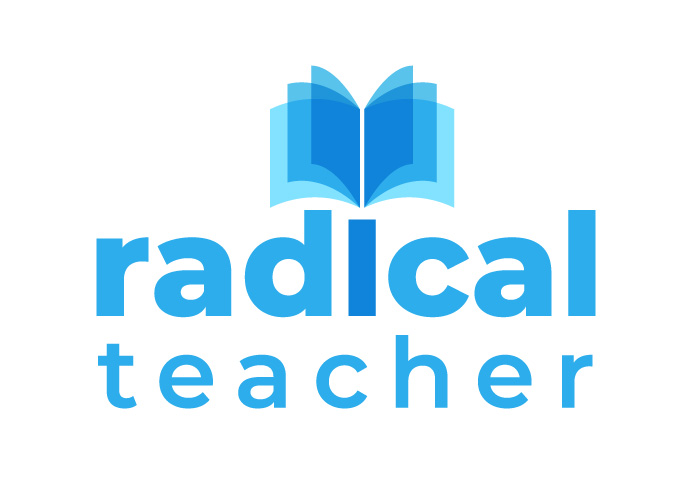Leah Glass

I was sitting on the 5-train last week, commuting home to Crown Heights from my non-profit job in the Financial District. It was hot, but not as crowded as usual, and I luckily snagged a seat. As is common on the subway, a man was reading from a Bible and trying to convince the tired and sweaty commuters that only God will save us from who-honestly-knows what. I opened my book, trying to immerse myself back into my story, but it was hard to focus with the frequent “Amens” and “Hallelujahs.”
I noticed the same frustration in the man sitting next to me. About three minutes before my stop, he closed his book with an annoyed “thwap,” and quickly stuffed the book into his bag. I got a quick look and saw he was reading Ishmael, by Daniel Quinn. The wave of familiarity and almost-glee rushed over me and I was tempted to ask him more about this book and why he was reading it. Before I got the chance, the subway doors opened and we both quickly exited the train and went our separate ways.
Earlier that same week, I was having a conversation with my boss, Jim, about systems thinking. The non-profit I work for is trying to become a “learning organization.” Essentially, we want to make fewer mistakes and learn from them when we do make them. A key tenet of becoming a learning organization is the idea of systems thinking—of knowing how different people, streams of work, and actions are interconnected and impact each other. It requires thoughtfulness and strategy and often, slowing down. As we were talking about who or what project could be used as a good example of using systems thinking, I said to Jim, “Honestly, this whole thing—this learning-org-systems-thinking stuff…this is my church! This is the stuff I believe in.”
Seeing this book—the companion to My Ishmael, a GST 101 foundational text—albeit briefly on the train, and re-learning and re-contemplating systems thinking, a pedagogical pillar of global studies, launched my brain (and heart) into a deep reflective and appreciative moment for the experiences I had in tom’s classes and in Global Studies more broadly. I was thinking about my experiences in those classes, and the biggest things I’ve taken away from them. I think there are probably countless lessons I’ve learned, but three threads or themes stick out to me that were not only crucial to those classes but have actually been extremely influential and important in my life and work beyond college.
Unlearning
Most likely, your entire life has been learning how to “learn.” You’ve been in school for 13+ years, and probably know the system pretty well. You know what is expected of you and how to perform. It can be challenging at times, but there is comfort in this consistency. Write the thing, fill in the bubble.
Well, prepare for that to change now. Classes with tom king directly challenge everything you’ve (most likely) ever experienced when it comes to formal education.
As an eager first year student, walking into Global Studies 101, I had very little idea as to what to expect. I was ready to work hard, but the traditional schooling I had received had ill-prepared me for this learning experience. What I soon came to understand was that the way in which I had been taught before was…well, wrong. I don’t ever want to say anything is truly wrong, because Ishmael taught me that there really isn’t one right way to live, but I think there are ways to learn, to properly, truly learn, and I hadn’t really had that experience. At least not in school. I learned a whole ton of shit on my own, just reading whatever I was interested in. But that’s very different from school.
My experience in Global Studies and with tom completely reframed my approach to learning and vocation. Although tom teaches across disciplines, the foundation of his pedagogy is the same: education/learning is very different from schooling. You go to school to be socialized and learn how to give the answers that teachers want. Often, it feels more like you learn how to be, rather than how to learn. Learning and education are a deeper, multidirectional pursuit where you both absorb new information, but also co-create new knowledge. You are driven by interest, and often passion. There are no real experts. Just a roomful (but actually, why define learning by walls and borders?) or cluster rather, of individuals who want to know more, together. Understanding that is the first step on your potentially paradigm shifting journey.
Storytelling
Writing an academic paper for school is a great and necessary skill. But often, it’s really not the best way to convey something. There is a true power to knowing how to craft and tell a story and you will get the opportunity to work on that in tom’s classes.
Imagine you have to convey to someone, anyone, the importance of a liberal arts education (the very one you’re getting right now). A casual statistic, such as 82% of liberal arts graduates report that they feel more prepared to enter the work force than students who didn’t get a liberal arts degree. Seems impactful. But also, imagine your best friend is trying to tell you why you should transfer to her liberal arts school. She isn’t going to talk about the graduation rate or level of satisfaction with the food. She’s going to tell you stories about her experience and why it makes her school special and worth going to. I honestly have no stake in liberal arts education, but it’s easy to see how a powerful story can carry more weight than a bland statistic.
When writing, be it for work, for school, or for a project like this, I often ask myself, “What am I trying to say?” That is the first step. But the second question I ask is, “What do I want my audience to feel when they read or hear this story?”. Bringing people along for the ride with you can leave a much more lasting impact than a somewhat impressive statistic. Beyond convincing someone of your point, or the importance of your point of view, stories connect us on a deeper level. Which brings us to the last theme.
Relationships
Pure knowledge and independent learning can only get us so far. It is great to have and follow a passion, but it will never be as deep if you do not engage other people and other perspectives. One of the most powerful things I’ve learned from my classes with tom, that I have carried with me in my work and plan to carry with me into the classroom, is that we all learn from each other together, and our lived experiences are valid perspectives that enhance the collective learning experience. Similar to the power of a well-crafted story, so too is the influence of the people you learn with and the connections you make. As I mentioned before, some of the best/truest/most influential learning involves co-creation—a shared experience of knowledge consumption and creation. It is the people you learn with that often matter more than the thing you learn. I remember the people in my classes and the stories they told much more vividly than some of the journal articles we read and the papers we wrote.
—
The non-profit organization I work for is all about mentoring. We pair high school students with college-educated mentors to try and help them navigate high school and eventually college. We are always talking about the impact a mentor has had on us, and why that experience has brought us and connected us all to the mission of the organization and the work we do each day.
As you can imagine, I get the opportunity to talk about an influential mentor in my own life pretty regularly. And I always talk about tom. tom didn’t just change the way I thought about the world and my own education (and honestly, my whole goal in life), but he fostered my own personal growth and was a constant sounding board as I struggled and figured things out. There is a moment, in my last year in college, that I’ll never forget. It was in the spring, nearing graduation, and I was meeting with tom to talk about something related to post-graduation plans (the specifics are hazy).
I said to tom, “So, I think I know what I want to be. I think I’ve decided that eventually, I want to be a college professor. I want to teach.” And, naturally, tom says, “Well, duh. I’m glad you finally figured that out.”
The remarkable thing is that he knew all along, even when I didn’t. But he didn’t tell me. He let me wrestle through it as I figured out all the other things you’re trying to figure out before you finish college.
The other remarkable thing is that I’m doing it. I’m teaching my first class at Brooklyn College this coming fall. And I don’t think that would have been possible without knowing tom king. I don’t think I’d be living my dream if I didn’t have that staggering, eye-opening and, at times, overwhelming global studies 101 class or the powerful relationships and moving stories of my classmates. Going through a paradigm shift is no easy feat, but the struggle is worth it, and the rewards, personally and professionally, are infinite.
